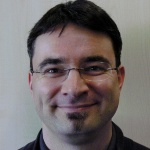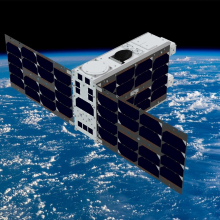How is the program structured?
In the Bachelor's program, 180 credit points (ECTS credits) must be acquired. These are distributed among core modules (138 ECTS credits), key qualifications (18 ECTS credits), a technical internship (12 ECTS credits) and the bachelor thesis (12 ECTS credits).
The subject modules are structured as follows:
- Basic modules for imparting fundamental methodological knowledge
- Core modules for imparting engineering competencies with a focus on aeronautics and astronautics
- Complementary modules for imparting application-oriented competences in the field of aerospace engineering
In addition, so-called key qualifications are taught, which are on the one hand interdisciplinary ("soft skills") and on the other hand related to the subject. The latter also includes the opportunity to carry out team projects, if necessary in cooperation with well-known industrial companies.
All modules and their descriptions are listed in the C@MPUS system.
Link to C@MPUSA six-week pre-study internship must be completed, if possible, prior to entering the study program. Internship guidelines can be found on the website of the Internship Department.
A 12-week technical internship in industry is scheduled in the sixth semester. The objective of the technical internship is to provide students with an insight into the variety of operational processes and professional perspectives in this field.
- Internship Department and Internship Guidelines
Here you will find the most important information about the internships
The exact module explanations can be found in the module handbooks (german only). There, the individual modules are described with the associated courses, the contents and the examination performances.
- Module handbook in C@MPUS
Link to the study program's module handbook (German only)
German language skills are a prerequisite for studying at the university. International students must therefore provide appropriate proof of the german knowledge. However, it is also possible to take a language course at the university.
Your study of aerospace engineering can be supplemented by courses that are summarized in the area of key qualifications (SQ). Key qualifications are necessary, for example, in order to acquire new knowledge and competencies and to be able to act in a situation-appropriate manner when faced with challenges in your studies and career. In addition, they should enable students to "think outside the box".
Software licenses
In the course of the study different softwares will be required. Most of them require a license. In the following you will find the available licenses.
- Siemens NX
License software for the CAD program Siemens NX - CATIA
Limited floating licenses of the CAD software CATIA, version CATIA v5 R21 from 05.07.2011 are available for "Darstellungstechnik II" and final theses for students of aerospace engineering - registration at mein.flurus.de required. - More licenses
Other licenses at TIK
Contact for further questions
Michael Reyle
Dr. rer. nat.Academic Employee, Program Manager Aerospace Engineering

Christian Koch
Dr.-Ing.Manager Altitude Test Facility, Academic advisor, deputy head of the institute



